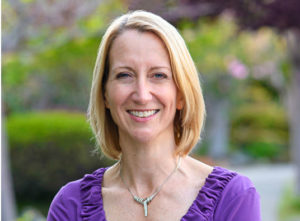Commentary on Rosh Hashanah Torah and Haftarah readings.
Reproductive rights have been hijacked. When someone mentions the phrase “reproductive rights,” the first things that usually come to mind are either birth control or abortion. However, the ability to prevent pregnancy is only part of reproductive rights. What about the right to have a child? This conversation has fallen by the wayside. Ironically, every year at Rosh Hashanah, Jews assert the centrality of having children, and we would do a great service to the world if we embrace that message a little more.
A married woman’s right to sex, which means access to fertility, was codified early in Jewish tradition. Initially included in the Torah’s injunction of a husband’s minimum obligations for food, clothing and sex (Exodus 21.10), the Talmud explains the women’s right to sex through an outline of the minimum sex a husband must provide for his wife (Ketubot 61b). For sure, mortality rates were influential in that process, but essentially Judaism has always been a pro-family, pro-child tradition. Early declarations of human rights spoke of enabling people to exercise their right to determine freely and responsibly the quantity and spacing of their children, along with the means for having them (see, e.g., the UN’s 1969 Declaration on Social Progress and Development, Part 1, Article 4). The language was not exclusive to birth prevention. It was inclusive of having children. The implied shift towards prevention has painful repercussions for millions who face fertility challenges.
Sign up to receive Torah from T’ruah in your inbox each week!
Rabbi Daniel Polish, a contemporary leader on interfaith dialogue, wrote in that context in the 1980s, “The recognition of the importance of human life is at the same time both integral to the Jewish faith system and the first and necessary precondition for a belief in human rights.”
On Rosh Hashanah, God is coronated, and God’s rule is epitomized through opening the Book of Life and beginning to decide who shall live and who shall die. Fertility is the ultimate example of that synthesis and exemplifies the other themes of the holiday: the birth of the world, the beginning of humanity and its frailty, and God as ultimate ruler and source of life. The first words of the Torah reading for the first day of Rosh Hashanah (Genesis 21:1-34) describe God “remembering Sarah,” meaning opening her womb to pregnancy. The Haftarah text (1 Samuel 1:1-2:10) then introduces Hannah, who is loved yet barren. She tearfully pours out her heart, God remembers her, and she has a child.
God’s ultimate power is exemplified through fertility. The connection comes together directly in a Talmudic passage:
Three keys the Holy One, blessed be [God], has retained in [God’s] own hands and not entrusted to the hand of any messenger: these are the key of rain, the key of childbirth, and the key of the revival of the dead. (Taanit 2a)
While Jews remain a little skeptical about anyone’s ability to overcome death, most of us have come to recognize our ability to affect the rains. Environmental action is real, and can affect our planet for the better. The medical community enabled assistance for reproduction. When it comes to pregnancy prevention, modern Jews have spoken out. Are the steps leading to childbirth some exception that, unlike other areas of healthcare, we should stay out? Is assistance for conceiving a child exceptional and beyond our realm of action? The politicization of all things related to reproduction, the lack of insurance coverage, and the assumption that attempts to procreate will work whenever we want all seem to have silenced the topic.
 Jews have almost always been open to intervention when our bodies have not performed as intended. The Torah states “Make sure he is healed” (verapo yerapei)( Exodus 21.19) in double (repetitive) language. The Talmud gleans from the double language that not only do doctors have permission to heal, but that healing is not considered to be an intervention counter to the will of God. (Baba Kamma 85a). Much of childbirth is out of our control, but bringing healing and relief to those facing infertility is something we can address.
Jews have almost always been open to intervention when our bodies have not performed as intended. The Torah states “Make sure he is healed” (verapo yerapei)( Exodus 21.19) in double (repetitive) language. The Talmud gleans from the double language that not only do doctors have permission to heal, but that healing is not considered to be an intervention counter to the will of God. (Baba Kamma 85a). Much of childbirth is out of our control, but bringing healing and relief to those facing infertility is something we can address.
I experienced years of infertility before becoming a parent. I have counseled hundreds of people dealing with a variety of fertility challenges. Wanting a child and then facing the prospect of not being able to have a child brings the importance of human life front and center. One of the ultimate expressions of our Judaism, of our faith in God and humanity, is through the creation of a new life.
Support, resources and advocacy are needed for people experiencing infertility and fertility challenges.
How can you help? Awareness is important and appreciated. As Rosh Hashanah’s messages of life, fertility, creation, and God’s power come upon us, remember those who feel isolated from that message. When we wish that others be inscribed in the Book of Life, include a prayer for those hoping and praying to be a part of creating life too.
Rabbi Idit Solomon is the founder and CEO of Hasidah, a Jewish nonprofit dedicated to building awareness about infertility in the Jewish community, connecting people to resources and providing financial support for treatment. She lives in Berkeley, California with her husband and three children.

